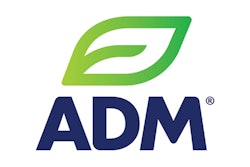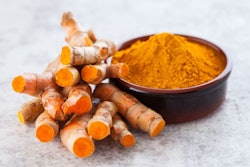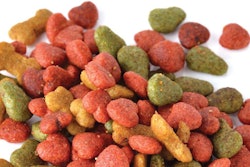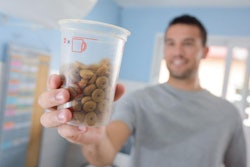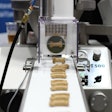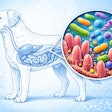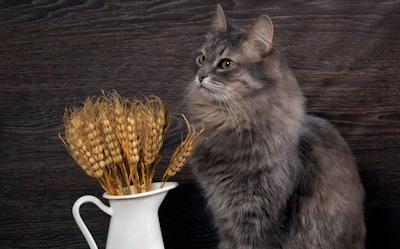
ADM Animal Nutrition, a provider of ingredients for the pet food and animal nutrition markets, has launched Versity, an alternative protein source for companion animals.
Developed to provide nutritional flexibility in pet food and treat formulation, Versity is a highly palatable dried yeast (Saccharomyces cerevisae) alternative to traditional plant and animal proteins that delivers a profile of essential amino acids with low levels of fat and calcium.
“Pet food and treat manufacturers are continuously seeking new protein ingredients that are high- quality, cost-effective and label-friendly,” said Gary Davenport, Ph.D, companion animal technical manager for ADM Animal Nutrition. “Versity has an amino acid profile similar to an egg, but at a more economical price, making it an ideal complementary or replacement protein source for dogs and cats,” said Davenport in a press release.
Representatives from ADM Animal Nutrition introduced Versity at the 2018 Pet Food Forum, alongside a number of other product launches.
The nutritional role of yeast in pet food
Analysis by Kansas State grain scientists found that next generation DDGs (left-overs from the production of ethanol that includes residues of yeast) contain 50.8 percent crude protein, compared with 47.8 percent in soybean meal or 67.1 percent in corn gluten meal.
Crude fat make up 3.9 percent of next generation DDGs, compared to 1.12 percent in soybean meal and 1.58 percent in corn gluten meal. These DDGs contain 4.13 percent crude fiber, compared to 3.18 percent in soybean meal.
Moisture was lowest in next generation DDGs at 6.71 percent. Soybean meal held 12.33 percent moisture, and corn gluten meal contained 10.17.
From a health standpoint, next generation DDGs give pet food formulators another option when trying to avoid ingredients that may cause allergies or have other unwanted characteristics.
Alternative protein sources in pet food
In addition to plant-based proteins and yeast protein, manufacturers are looking to insects as an alternative protein source in pet food. Although many pet owners have anecdotal stories of dogs and cats eating insects, scientists haven’t fully studied the tiny animals’ nutritional and health effects on dogs and cats. However, basic analysis of many insects, such as black soldier fly larvae and crickets, suggest that the animals as packed with proteins and other nutrients.


